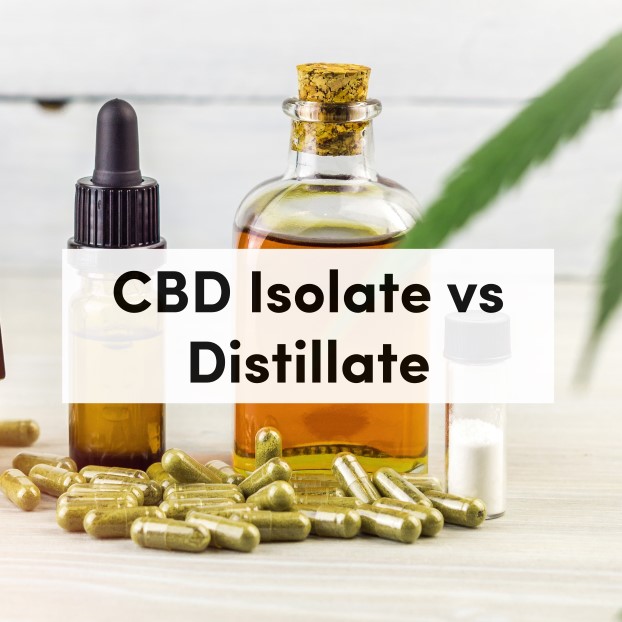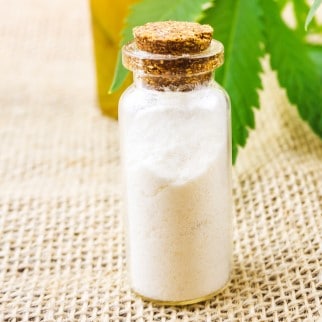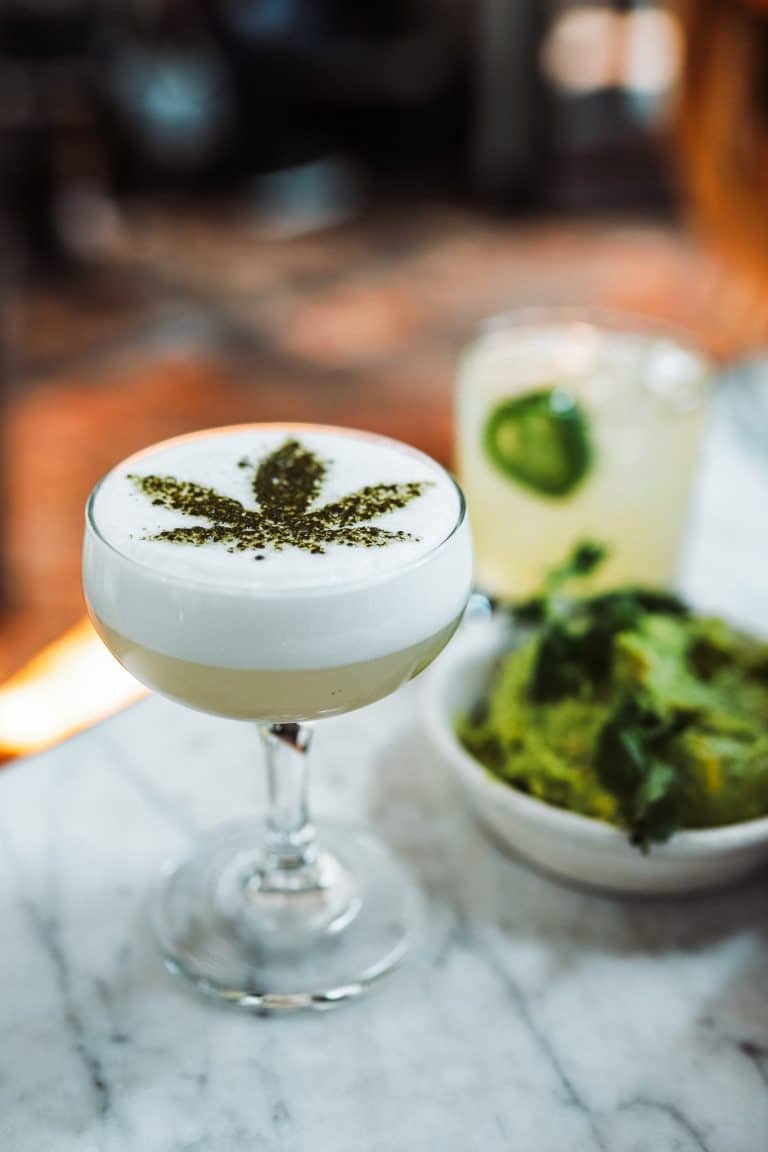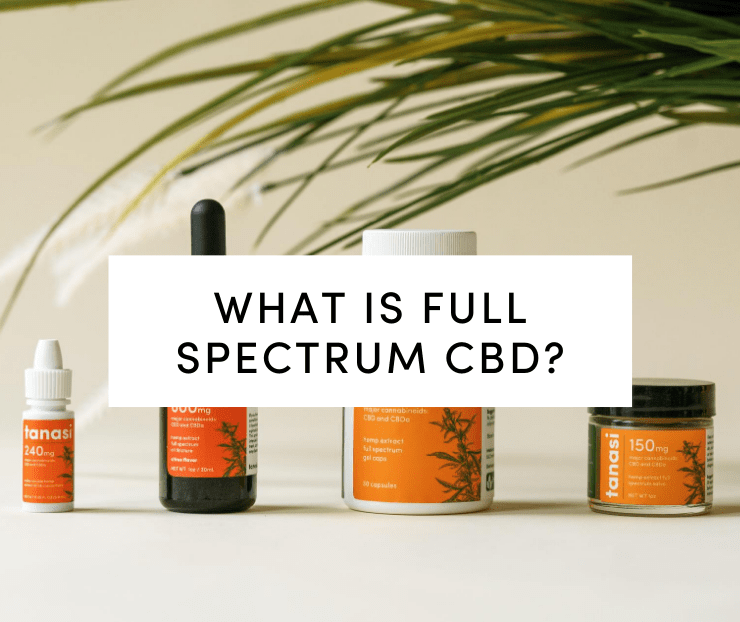Topical CBD Bioavailability: How Useful Are Salves, Lotions, and Patches?
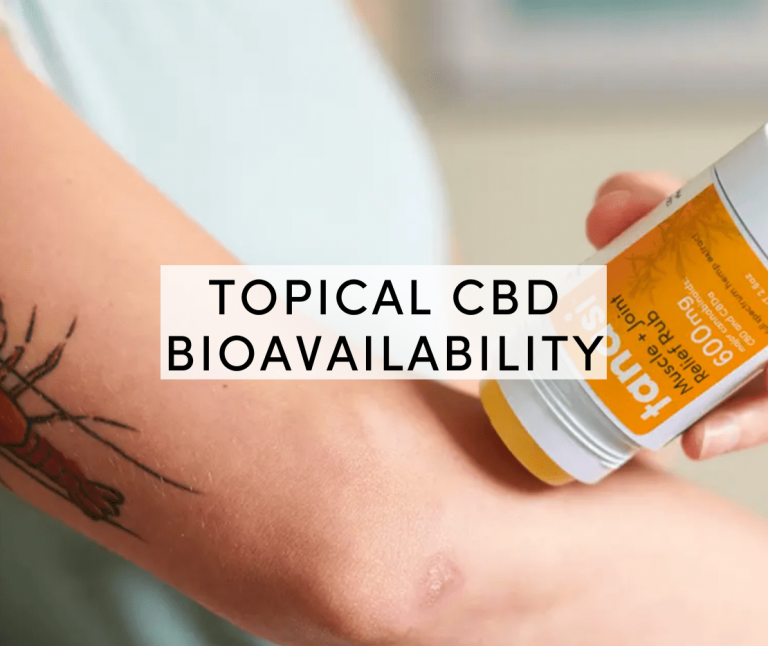
Posted on April 28th, 2021
CBD has created quite a buzz in the wellness industry in recent years. It has become quite popular and is now available in cafes, convenience stores, and pharmacies. Basically, CBD is everywhere. Its popularity may be due to the 2018 Farm Bill that Congress passed. It legalized the extraction and commercialization of CBD from hemp. As long as it contains THC levels below 0.3%, then it is legal. This has hastened the growth of the CBD industry in such a short time. Many people swear by its benefits such as pain relief, treating anxiety and depression, acne, sleep disorders, and many more. However, the question that is on many people’s minds is CBD bioavailability. There are different methods to take CBD: inhalation, ingestion, or topical application. This guide will discuss topical CBD bioavailability and why it matters to consumers.
What is Bioavailability?
It is the degree and rate at which a substance absorbs into the bloodstream. There are different methods of taking CBD, and each of them has a different bioavailability. The bioavailability of a substance changes greatly depending how you take it. Substances can enter the bloodstream in four ways: injection, absorption, inhalation, and ingestion.
In the case of CBD, the bioavailability depends on pharmacokinetics. This is the process in which the body processes compounds. It refers to the sum of the body’s mechanisms for absorption, the CBD characteristics, and external factors that may hinder or enhance the way you absorb CBD. For example, 10 mg of CBD taken with a vaporizer is not the same as 10mg taken orally or topically.
The Science Of CBD Bioavailability
Below are some facts to help understand the science behind CBD bioavailability.
- Absorption.
Cannabinoids are lipophilic molecules; hence, they are not soluble in water and tend to float. The human body is mostly made of water; hence cannabinoids generally have low bioavailability as they are not as easily absorbed. This is why it is crucial to choose a product with high bioavailability.
- Distribution.
When it comes to distributing cannabinoids to several parts of the body, transdermal, intranasal, and transmucosal methods are better than oral methods. CBD easily disperses into the bodily tissues and organs where it may relieve the symptoms you are experiencing.
- Metabolism.
Metabolism also greatly affects bioavailability. This is how molecules break down in the body, and it can hinder absorption. For example, the liver metabolizes CBD when taken orally; hence this affects its bioavailability greatly.
- Excretion.
CBD metabolites are mostly excreted through the kidney. Here is where products with high bioavailability are encouraged. They will be absorbed and distributed to other organs and parts of the body instead of being cleared immediately.
 Topical CBD Bioavailability
Topical CBD Bioavailability
CBD topicals have a huge market, especially in the beauty and skincare sector. A CBD topical is a substance such as a cream or lotion that is infused with CBD. These are meant to be directly applied to the skin. The CBD is usually absorbed into the pores and epidermis and begins to work with the cannabinoid receptors in the skin. TRPV1 and CB2 receptors are present in the periphery system and skin compared to the CB1 receptors, usually located in the central nervous system. The skin’s permeability to CBD is quite low, but absorption still happens, hence potentially alleviating discomfort.
CBD topicals are quite popular since they are quickly absorbed and easily deliver their potential benefits when applied to the area needed. The effects are usually immediate since you apply it directly to a specific area, and it is more centralized than other methods. Since topical CBD bypasses the digestive process, its effects are much longer than the ingestible products. This is why topical CBD is ideal for long-term relief for localized symptoms.
However, CBD topicals have low bioavailability, as no matter how much you apply, it will not be able to reach the bloodstream since it is not permeable enough.
There are different types of CBD topicals. They include:
Facial Oils And Serums
CBD facial oils help provide hydration by creating a barrier between the air and moisture in the skin. Oils usually prevent moisture from evaporating, and since CBD is fat-soluble, the combination will help in CBD absorption. When buying CBD facial oils and serums, follow the manufacturer’s instructions. The amount you will use and frequency will vary with the ingredients and your skin type.
Transdermal Patches
A transdermal CBD patch will ensure that there is a continuous release of CBD into the bloodstream. They are perfect for people who want continuous CBD absorption in a particular body area and those who have difficulty using tinctures or capsules. All you have to do is to stick it on the skin and allow it to work. These patches can last between 24 to 48 hours. They are great for a CBD beginner.
CBD Salves And Ointments
These usually include waxes and oils to create a semi-solid substance. They are usually not as easily absorbed into the skin like creams and lotions. They, therefore, sit longer on the skin’s surface, hence have longer-lasting effects. Salves and ointments are perfect for users who want extended relief as they are perfect for long-term and targeted pain relief. All you have to do is apply a small amount to the painful area and rub it on the skin. The effects will last up to 6 hours.
Lotions And Creams
These mainly contain a combination of oil and water and are formulated to hydrate the skin. They also provide additional benefits of pain relief and inflammation reduction. They are mostly used by people suffering from psoriasis or eczema to relieve dryness, itching, redness, and inflammation. Their anti-inflammatory and pain relief effects can last for 4-6 hours. Others products include roll-on applicators, bath bombs, and balms.
Comparing Topical CBD Bioavailability
Topical CBD products have numerous benefits for people. Many people swear by their effectiveness. The reason for this is that it is applied to the skin, which is the body’s largest organ. The skin is filled with CB receptors; hence the cannabinoids can cross the epidermal layer and directly affect the receptors by absorption.
Topical CBD bioavailability is very low, but they allow for direct absorption into the affected area. Transdermal patches may enable the CBD to cross through the skin and into the bloodstream due to new technology. They are more bioavailable than the other CBD topicals.
 Advantages Over Other CBD Products?
Advantages Over Other CBD Products?
CBD topicals are great if you have a specific area that needs CBD the most. They attach to the skin’s cannabinoid receptors at the particular area, hence helping in relieving the symptoms.
CBD topicals aren’t absorbed into the bloodstream unless with a transdermal patch. However, their effects are usually more concentrated as they are within one area. Therefore, they are great for people trying to relieve minor discomfort in muscles and joints or revitalize the skin in specific areas.
What Benefits Are Possible?
The possible benefits of CBD topicals are as follows:
Pain Relief
If you are suffering from back or knee pain, CBD topicals may help alleviate the symptoms. The cannabinoids in the topicals will bind to the receptors, hence providing fast relief.
Reduce Inflammation
CBD topicals may help in dealing with inflammation, which greatly affects arthritis patients. The CB2 receptors in the joint tissues are abnormally high in arthritis patients. CBD works by interacting with the receptors, reducing inflammation.
Reduce Symptoms Of Psoriasis
Psoriasis is a painful medical condition that can adversely affect your life. It is usually characterized by an excess buildup of skin cells, leaving painful and itchy red patches on the skin. The sad news is that there is still no cure for it, which can be quite devastating. However, according to a 2007 study, cannabinoids inhibited the buildup of dead skin cells, which is a direct cause of psoriasis. More research is still needed on the subject, but it is evident that CBD topicals aid in dealing with psoriasis.
Fight Bacterial Skin Infections
CBD topicals have antibacterial properties; therefore, they provide relief to people suffering from various skin infections such as boils, impetigo, and even cellulitis. Another advantage of using CBD is that, unlike the over-the-counter antibiotics, they do not lead to antibiotic resistance.
Burn Relief
If you have experienced a burn on any area of the body, the experience can be quite painful. The burns usually take a long time to heal, in some instances, up to several months. CBD topicals may help soothe the inflammation and reduce the pain. This way, the burn will heal faster.
Conclusion
Topical CBD bioavailability is quite low; therefore, you will have to experiment to get the right dose for you. The nature of creams and lotions means the dosage is usually not precise, unlike in tinctures or capsules. Always follow the manufacturer’s instructions to be able to get the benefits you’re looking for. Topical CBD bioavailability may require you to supplement with tinctures or vape products. Notice how your body responds to see what works for you.

